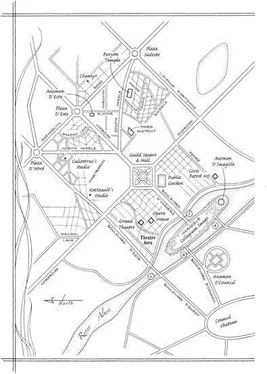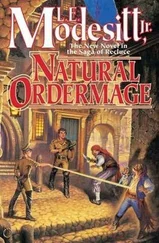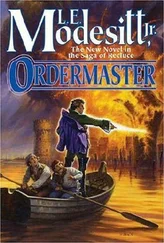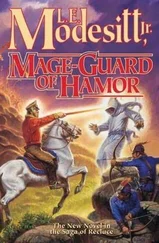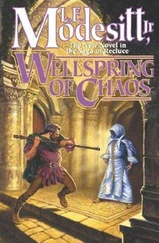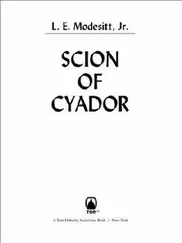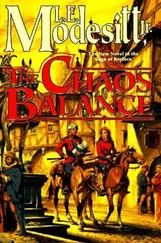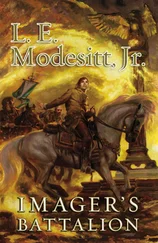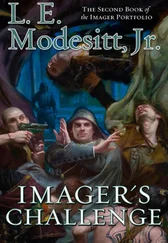L. E.Modesitt - Imager’s Intrigue
Здесь есть возможность читать онлайн «L. E.Modesitt - Imager’s Intrigue» весь текст электронной книги совершенно бесплатно (целиком полную версию без сокращений). В некоторых случаях можно слушать аудио, скачать через торрент в формате fb2 и присутствует краткое содержание. Жанр: Фэнтези, на английском языке. Описание произведения, (предисловие) а так же отзывы посетителей доступны на портале библиотеки ЛибКат.
- Название:Imager’s Intrigue
- Автор:
- Жанр:
- Год:неизвестен
- ISBN:нет данных
- Рейтинг книги:5 / 5. Голосов: 1
-
Избранное:Добавить в избранное
- Отзывы:
-
Ваша оценка:
- 100
- 1
- 2
- 3
- 4
- 5
Imager’s Intrigue: краткое содержание, описание и аннотация
Предлагаем к чтению аннотацию, описание, краткое содержание или предисловие (зависит от того, что написал сам автор книги «Imager’s Intrigue»). Если вы не нашли необходимую информацию о книге — напишите в комментариях, мы постараемся отыскать её.
Imager’s Intrigue — читать онлайн бесплатно полную книгу (весь текст) целиком
Ниже представлен текст книги, разбитый по страницам. Система сохранения места последней прочитанной страницы, позволяет с удобством читать онлайн бесплатно книгу «Imager’s Intrigue», без необходимости каждый раз заново искать на чём Вы остановились. Поставьте закладку, и сможете в любой момент перейти на страницу, на которой закончили чтение.
Интервал:
Закладка:
“I may well manage the wrong way. There’s more going on than I’d like.”
“In what way?” asked Kahlasa.
I served myself rice and chicken before I replied. “Artois tends to want to keep order and ignore the taudis except when they create trouble. He’s gone along with the changes I’ve made in Third District because the results have reduced offenses there without requiring more patrollers. Cydarth seems to quietly oppose Artois, but he hasn’t cared for my changes.”
“That sounds like he’s a partisan of the factors,” said Ferlyn. “You’ve been improving the taudis and getting more of the young men trained in various crafts and skills. If others followed your example, there’d be fewer young men available for cheap labor.”
Quaelyn nodded sagely, but did not speak.
I shook my head. “That won’t happen. After five years, things are pretty much the same everywhere else in L’Excelsis.”
“Does that matter?” asked Ferlyn. “What matters is what people worry about, not what actually is or might happen.”
I nodded. He was right about that, but did it really shed any light on what Cydarth had in mind and might have been doing? For a time, I just concentrated on the rice and chicken. I was hungrier than I’d realized.
As I finished, I turned to Ferlyn again. “You’re dealing with patterns, analyzing them, and the like. What do your patterns say about Ferrum?” I looked to Quaelyn, sitting to Ferlyn’s right. “Or yours, Maitre Quaelyn?”
Ferlyn smiled. “You must be very concerned to ask. But I will defer to my mentor.”
“I’m worried.” I didn’t mind admitting that. “I have the feeling we’re missing something important. I’m hoping you two might have an insight I can use.”
“He’s very concerned,” Ferlyn said to Kahlasa.
I forced a grin. “I think you’ve made that point, and I’ve admitted it.”
Ferlyn didn’t say anything, but nodded to Quaelyn. “You’ve studied Ferrum. You’ve even been there.”
That was something I didn’t know, and it meant that the now-frail and white-haired Maitre had once been a covert foreign agent.
“That was a few years ago,” Quaelyn said softly, “but the patterns of a society don’t change, not without great economic shifts or a loss in war or social upheaval or something of equal magnitude, and Ferrum has not seen any of those in generations. The last, shall we say, conflict with Jariola and our fleet was essentially a stand-off, with all the destruction confined to Jariola and perhaps half a Ferran fleet.”
I wasn’t certain that the short war hadn’t had more of an impact, but then…he was probably right. From experience, I’d noted he usually was.
“One matter that has been greatly overlooked,” the elderly Maitre went on, “is the impact of the Ferran economic and political structure. In Solidar, because we have a far older social structure, we tend not to change quickly and not to make rash business decisions. A factor, for example, can seldom afford to expand quickly, even if he has a better idea or product. That is partly because his customers are set in their ways, and partly because few have enough golds to make major investments out of their revenues. Those who do not have such reserves find it difficult to obtain large amounts of capital to fund expansion of facilities or manufactories. In Ferrum, price is the ruler. People flock to the cheapest goods of equal quality, and many factors compete for customers. Many factors fail every year, and there is a constant turnover in commerce. Obviously, this is not as pronounced in manufactories dealing with iron or heavy machinery, but even a generation ago, Ferrum had four or five manufactories producing locomotives and engines, and ten shipworks. None, of course, rivaled Suyrien’s in scope, but they could build more ships.”
“Not better ones, though,” I suggested.
“Not then, but they compete against each other, and with each passing year, their vessels are better, and so are their other goods. While I have not seen the actual land-cruisers, the newsheet reports note that the ones used in invading Jariola are far, far better than those they had but five years ago. We have nothing like them, because we see no need for such.” Quaelyn paused to take a sip of tea.
“What else?” I prompted.
“A second area that is seldom discussed is the comparative physical fragility of Ferran cities and industrial areas. Because their society is based on the greater creation of revenues and profits in the near-term, and because they are always changing things, they tend to build and rebuild all the time. They don’t build manufactories to last, out of stone and brick with walls that may last generations. They also do the same thing for housing for their workers. That means, over time, that they tend to waste golds because they have to rebuild more often. Part of that is that there are more fires, and they cause more damage. Their equipment tends to wear out quickly, but often that doesn’t matter, because the goods the equipment produces are changed quickly also.” Quaelyn took another sip of tea, then nodded, as if to say that he had said enough.
I wasn’t sure I liked the idea of almost-temporary housing that burned quickly, but that was their choice. I took a swallow of tea, hot and bitter, then turned to Ferlyn. “How else do you see the patterns of Ferrum as differing from ours? Are there other differences?”
“One Quaelyn didn’t mention directly is the legal structure. The Ferran assembly has changed and modified its laws so that the current economic and political patterns are generally consistent at all levels of society.”
“What do you mean by that?” asked Kahlasa. “Can you give an example?”
Ferlyn shrugged. “They don’t have local laws that are different from place to place.”
“We don’t either,” said Kahlasa.
“But we do,” I pointed out. “The laws are the same in any city, but the High Holders retain the power of low justice on their lands, and that means it’s pretty much what each High Holder determines, so long as the punishments don’t exceed the maximum stipulated by the Council charter. That’s a thousand different systems.”
“Precisely…” said Ferlyn, drawing out the word. “The same thing is true in dealing with manufacturing. In Ferrum, everything is subject to the same levies, or the same scale of levies, where here, we have different taxation structures. There’s one for goods produced by guilds and artisans, another for factors, and another for anything produced by High Holders. This is designed to perpetuate the current division, but it’s not terribly fair or efficient.”
I wasn’t so certain about fairness. Because of the restrictions created in each group, taxing them the same might be less fair. “Should efficiency be the overriding goal?”
“That’s a political question. You asked about the differences. The Ferrans work toward maximizing efficiency and production…and making large profits quickly. Before long, if we don’t change, they’ll be able to manufacture ironway locomotives in Ferrum, ship them here, and still sell them for less. That’s why they’ll eventually conquer Jariola, even if they fail this time. They learn and improve. Even in terms of war and destruction, they’re trying to be efficient, to create the most destruction with the least use of resources.”
“The most destruction with the least use of resources…” I mused, half-aloud. “In a way, that’s a terrible way of putting it.”
“But that’s what war is about…in terms of patterns. The winner is the one who creates the most destruction for the other while minimizing the destruction he suffers.”
Even after I’d returned to my study, Ferlyn’s phrase about destruction kept running through my thoughts. There was something about it…
Читать дальшеИнтервал:
Закладка:
Похожие книги на «Imager’s Intrigue»
Представляем Вашему вниманию похожие книги на «Imager’s Intrigue» списком для выбора. Мы отобрали схожую по названию и смыслу литературу в надежде предоставить читателям больше вариантов отыскать новые, интересные, ещё непрочитанные произведения.
Обсуждение, отзывы о книге «Imager’s Intrigue» и просто собственные мнения читателей. Оставьте ваши комментарии, напишите, что Вы думаете о произведении, его смысле или главных героях. Укажите что конкретно понравилось, а что нет, и почему Вы так считаете.
